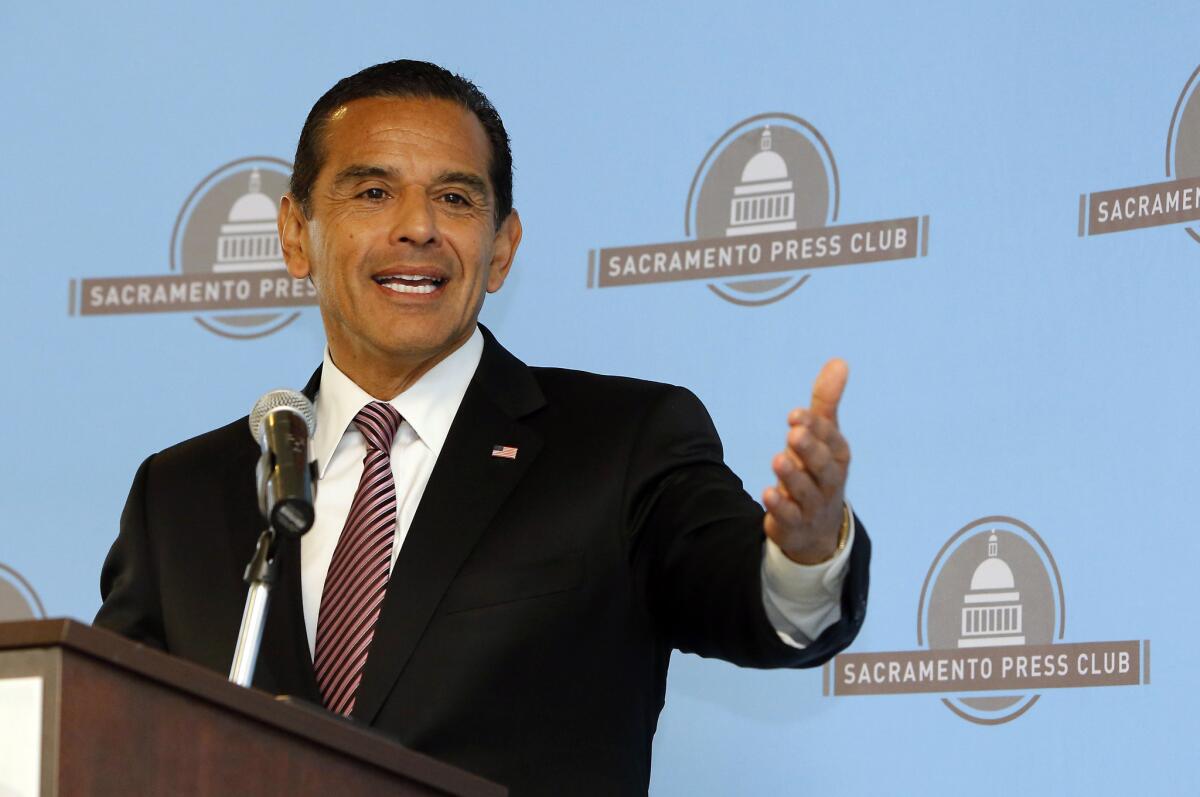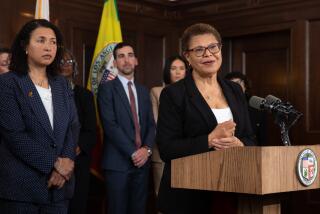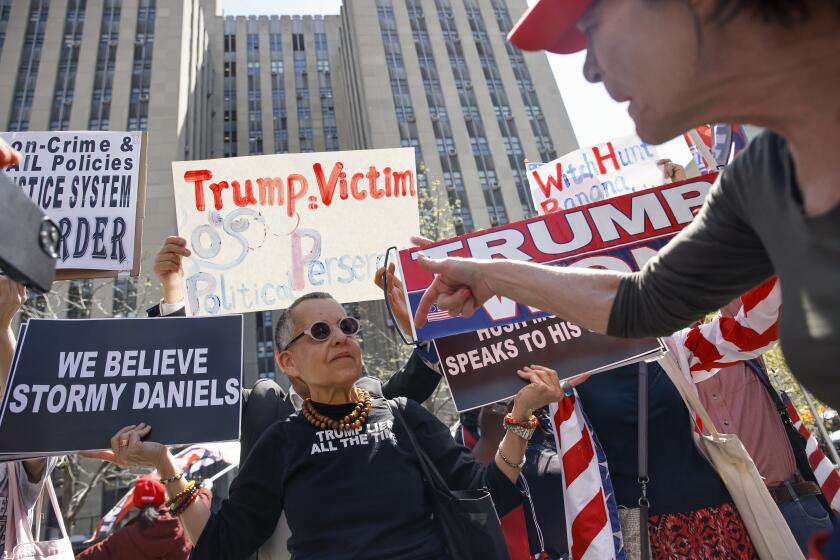Mayor Villaraigosa seeks a do-over for one of his biggest goofs

Heading for the exit at City Hall, Mayor Antonio Villaraigosa on Monday proposed to cancel the last installment of the pay raises that he and the City Council granted thousands of city workers in late 2007.
The raises, which totaled 25% over five years, contributed to a succession of budget shortfalls that forced the city to furlough workers and cut public services. Although Villaraigosa and the council persuaded city unions to delay some of the raises, Monday’s budget was the first to propose that any of the increase be rescinded.
Neither the mayor nor the council can unilaterally cancel the 5.5% pay hike that 60,000 civilian workers are slated to receive on Jan. 1. The workers’ unions would have to agree to reopen negotiations and change their contracts. Nevertheless, Villaraigosa included no money in his $7.7 billion budget for the raises. In fact, his proposal would force workers who’d already received the pay hike to give it back.
Canceling the pay hike was one of the few astringent steps the mayor sought in his final budget submission; others included requiring city employers to cover 10% of the cost of their health benefits and trimming the accounts for the mayor and the council by 10%. On the other hand, Villaraigosa proposed no layoffs or furloughs, nor did he seek the elimination or privatization of any major city functions. He also called for $119 million in new or increased spending on city programs.
“I firmly believe that the next mayor and council should be afforded the opportunity to renegotiate these employee benefits,” Villaraigosa breezily wrote in his budget message. “While challenging, these actions must be pursued to ensure the city’s long-term financial health.
Bear in mind that Villaraigosa wasn’t so keen on providing this “opportunity” to his successor. He threw his support behind a proposed half-cent increase in the city sales tax that would have raised more than $200 million, obviating the need for any concessions by the unions in the coming fiscal year. Voters rejected the sales tax proposal in March, however, despite dire warnings from Villaraigosa and other city leaders about a sizable budget gap that could force dangerous cuts in public safety.
(For the record, The Times’ editorial board opposed the sales tax measure, saying the next mayor and new council majority should be the ones to decide how to close the budget gap.)
It’s not exactly a profile in political courage for Villaraigosa to propose worker give-backs on his way out the door. And I’m skeptical that the council will even agree to seek the concessions, let alone win them. But considering how hard the raises have been on the city’s finances during the recession and sluggish recovery, it’s good to see Villaraigosa acknowledge that the city ought to try to undo some of the damage.
Oh, and that $216 million budget gap that city leaders were trumpeting just a few months ago? The mayor’s budget predicts a much smaller shortfall -- $54 million -- but does so based on some (ahem!) iffy assumptions. For starters, it projects that city revenue will grow a whopping 5.6% in the fiscal year that begins July 1, up from a little more than 2% in the current year. Much of that comes from a big jump projected in license, permit and fee revenue. It also predicts that the changes in retiree benefits enacted by the council, including smaller pensions for newly hired workers and larger contributions by employees to retiree healthcare costs, will save $51 million, up from a maximum of $45 million in March.
The smaller shortfall, when combined with the savings on payroll, would enable the city to fund the aforementioned $119 million in new or expanded programs. Villaraigosa slated most of that increase for improvements to core services, such as more street and sidewalk repairs, additional firefighters and a new economic development office, as well as a larger reserve fund.
ALSO:
McManus: A tax everyone can love
Boston bombings: Don’t blame boxing
Follow Jon Healey on Twitter @jcahealey
More to Read
A cure for the common opinion
Get thought-provoking perspectives with our weekly newsletter.
You may occasionally receive promotional content from the Los Angeles Times.







